Abstract:
This article proposes two novel deep convolutional neural networks (CNN), which are called the sparse coding convolutional neural network (SC-CNN) and the multi-convoluti...Show MoreMetadata
Abstract:
This article proposes two novel deep convolutional neural networks (CNN), which are called the sparse coding convolutional neural network (SC-CNN) and the multi-convolutional-channel SC-CNN (MSC-CNN), to address the sound event recognition and retrieval problem. Unlike the general framework of a CNN, in which the feature learning process is performed hierarchically, the proposed framework models the whole memorization process in the human brain, including encoding, storage, and recollection. In particular, the MSC-CNN is designed to recognize multiple sound events that occur simultaneously. The experimental results indicate that the proposed SC-CNN and MSC-CNN outperforms the state-of-the-art systems in sound event recognition and retrieval.
Published in: IEEE/ACM Transactions on Audio, Speech, and Language Processing ( Volume: 28)
Funding Agency:
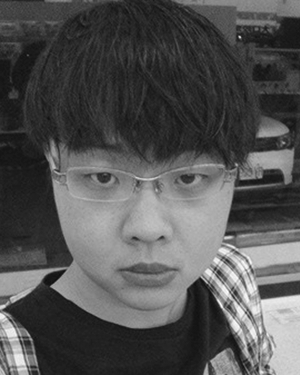
Institute of Information Science, Academia Sinica, Taipei City, Taiwan
Chien-Yao Wang received the B.S. degree in computer science and information engineering and the Ph.D. degree from National Central University, Zhongli, Taiwan, in 2013 and 2017, respectively. He is currently a Postdoctoral Fellow with the Institute of Information Science, Academia Sinica, Taipei, Taiwan. His research interests include signal processing, deep learning, and machine learning. He is an honorary member of Phi ...Show More
Chien-Yao Wang received the B.S. degree in computer science and information engineering and the Ph.D. degree from National Central University, Zhongli, Taiwan, in 2013 and 2017, respectively. He is currently a Postdoctoral Fellow with the Institute of Information Science, Academia Sinica, Taipei, Taiwan. His research interests include signal processing, deep learning, and machine learning. He is an honorary member of Phi ...View more
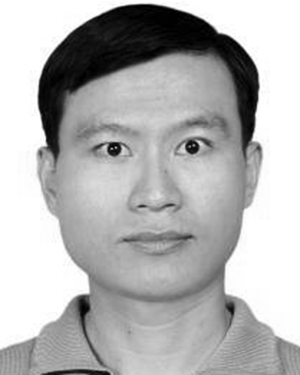
Department of Computer Science and Information Engineering, Providence University, Taichung City, Taiwan
Tzu-Chiang Tai received the Ph.D. degree from the Department of Electrical Engineering, National Cheng Kung University, Tainan, Taiwan, in 2010. He is currently an Associate Professor with the Department of Computer Science and Information Engineering, Providence University, Sha-Lu, Taiwan. His current research interests include reconfigurable computing, VLSI design automation, and algorithm design and analysis.
Tzu-Chiang Tai received the Ph.D. degree from the Department of Electrical Engineering, National Cheng Kung University, Tainan, Taiwan, in 2010. He is currently an Associate Professor with the Department of Computer Science and Information Engineering, Providence University, Sha-Lu, Taiwan. His current research interests include reconfigurable computing, VLSI design automation, and algorithm design and analysis.View more
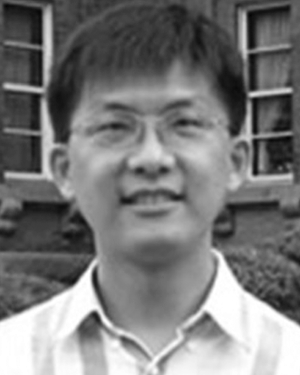
Department of Computer Science and Information Engineering, National Central University, Taoyuan City, Taiwan
Jia-Ching Wang received the Ph.D. degree in electrical engineering from National Cheng Kung University, Tainan, Taiwan, in 2002. He is currently a Professor with the Department of Computer Science and Information Engineering, National Central University, Taoyuan, Taiwan. He was an Honorary Fellow with the Department of Electrical and Computer Engineering, University of Wisconsin–Madison in 2008 and 2009. His research inte...Show More
Jia-Ching Wang received the Ph.D. degree in electrical engineering from National Cheng Kung University, Tainan, Taiwan, in 2002. He is currently a Professor with the Department of Computer Science and Information Engineering, National Central University, Taoyuan, Taiwan. He was an Honorary Fellow with the Department of Electrical and Computer Engineering, University of Wisconsin–Madison in 2008 and 2009. His research inte...View more

Department of Computer Science and Information Engineering, National Central University, Taoyuan City, Taiwan
Andri Santoso received the B.S. degree in computer science from Brawijaya University, Malang, Indonesia, in 2012 and the M.S. degree in computer science and information engineering from National Central University, Taoyuan, Taiwan, in 2016. His main research interests are image processing, signal processing, and deep learning.
Andri Santoso received the B.S. degree in computer science from Brawijaya University, Malang, Indonesia, in 2012 and the M.S. degree in computer science and information engineering from National Central University, Taoyuan, Taiwan, in 2016. His main research interests are image processing, signal processing, and deep learning.View more
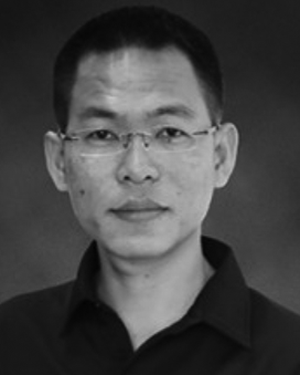
Department of Computer Science and Information Engineering, National Central University, Taoyuan City, Taiwan
Seksan Mathulaprangsan received the Ph.D. degree in computer science and information engineering from National Central University, Taoyuan, Taiwan, in 2019.
Seksan Mathulaprangsan received the Ph.D. degree in computer science and information engineering from National Central University, Taoyuan, Taiwan, in 2019.View more
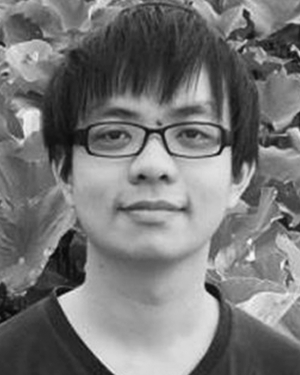
Department of Computer Science and Information Engineering, National Central University, Taoyuan City, Taiwan
Chin-Chin Chiang received the M.S. degree from National Central University, Zhongli, Taiwan, in 2016. His research interests include deep learning, image recognition, attention model, and deep learning.
Chin-Chin Chiang received the M.S. degree from National Central University, Zhongli, Taiwan, in 2016. His research interests include deep learning, image recognition, attention model, and deep learning.View more
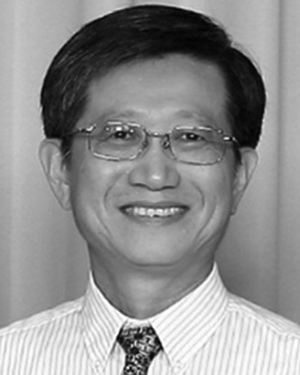
Department of Computer Science and Information Engineering, National Cheng Kung University, Taoyuan City, Taiwan
Chung-Hsien Wu received the B.S. degree in electronics engineering from National Chiao Tung University, Hsinchu, Taiwan, in 1981, and the M.S. and Ph.D. degrees in electrical engineering from National Cheng Kung University (NCKU), Tainan, Taiwan, in 1987 and 1991, respectively. Since 1991, he has been with the Department of Computer Science and Information Engineering, NCKU. He became the Chair Professor in 2017. He was t...Show More
Chung-Hsien Wu received the B.S. degree in electronics engineering from National Chiao Tung University, Hsinchu, Taiwan, in 1981, and the M.S. and Ph.D. degrees in electrical engineering from National Cheng Kung University (NCKU), Tainan, Taiwan, in 1987 and 1991, respectively. Since 1991, he has been with the Department of Computer Science and Information Engineering, NCKU. He became the Chair Professor in 2017. He was t...View more

Institute of Information Science, Academia Sinica, Taipei City, Taiwan
Chien-Yao Wang received the B.S. degree in computer science and information engineering and the Ph.D. degree from National Central University, Zhongli, Taiwan, in 2013 and 2017, respectively. He is currently a Postdoctoral Fellow with the Institute of Information Science, Academia Sinica, Taipei, Taiwan. His research interests include signal processing, deep learning, and machine learning. He is an honorary member of Phi Tau Phi Scholastic Honor Society.
Chien-Yao Wang received the B.S. degree in computer science and information engineering and the Ph.D. degree from National Central University, Zhongli, Taiwan, in 2013 and 2017, respectively. He is currently a Postdoctoral Fellow with the Institute of Information Science, Academia Sinica, Taipei, Taiwan. His research interests include signal processing, deep learning, and machine learning. He is an honorary member of Phi Tau Phi Scholastic Honor Society.View more

Department of Computer Science and Information Engineering, Providence University, Taichung City, Taiwan
Tzu-Chiang Tai received the Ph.D. degree from the Department of Electrical Engineering, National Cheng Kung University, Tainan, Taiwan, in 2010. He is currently an Associate Professor with the Department of Computer Science and Information Engineering, Providence University, Sha-Lu, Taiwan. His current research interests include reconfigurable computing, VLSI design automation, and algorithm design and analysis.
Tzu-Chiang Tai received the Ph.D. degree from the Department of Electrical Engineering, National Cheng Kung University, Tainan, Taiwan, in 2010. He is currently an Associate Professor with the Department of Computer Science and Information Engineering, Providence University, Sha-Lu, Taiwan. His current research interests include reconfigurable computing, VLSI design automation, and algorithm design and analysis.View more

Department of Computer Science and Information Engineering, National Central University, Taoyuan City, Taiwan
Jia-Ching Wang received the Ph.D. degree in electrical engineering from National Cheng Kung University, Tainan, Taiwan, in 2002. He is currently a Professor with the Department of Computer Science and Information Engineering, National Central University, Taoyuan, Taiwan. He was an Honorary Fellow with the Department of Electrical and Computer Engineering, University of Wisconsin–Madison in 2008 and 2009. His research interests include signal processing, machine learning, deep learning, and VLSI architecture design. He is an honorary member of Phi Tau Phi Scholastic Honor Society and a member of the ACM and the IEICE.
Jia-Ching Wang received the Ph.D. degree in electrical engineering from National Cheng Kung University, Tainan, Taiwan, in 2002. He is currently a Professor with the Department of Computer Science and Information Engineering, National Central University, Taoyuan, Taiwan. He was an Honorary Fellow with the Department of Electrical and Computer Engineering, University of Wisconsin–Madison in 2008 and 2009. His research interests include signal processing, machine learning, deep learning, and VLSI architecture design. He is an honorary member of Phi Tau Phi Scholastic Honor Society and a member of the ACM and the IEICE.View more

Department of Computer Science and Information Engineering, National Central University, Taoyuan City, Taiwan
Andri Santoso received the B.S. degree in computer science from Brawijaya University, Malang, Indonesia, in 2012 and the M.S. degree in computer science and information engineering from National Central University, Taoyuan, Taiwan, in 2016. His main research interests are image processing, signal processing, and deep learning.
Andri Santoso received the B.S. degree in computer science from Brawijaya University, Malang, Indonesia, in 2012 and the M.S. degree in computer science and information engineering from National Central University, Taoyuan, Taiwan, in 2016. His main research interests are image processing, signal processing, and deep learning.View more

Department of Computer Science and Information Engineering, National Central University, Taoyuan City, Taiwan
Seksan Mathulaprangsan received the Ph.D. degree in computer science and information engineering from National Central University, Taoyuan, Taiwan, in 2019.
Seksan Mathulaprangsan received the Ph.D. degree in computer science and information engineering from National Central University, Taoyuan, Taiwan, in 2019.View more

Department of Computer Science and Information Engineering, National Central University, Taoyuan City, Taiwan
Chin-Chin Chiang received the M.S. degree from National Central University, Zhongli, Taiwan, in 2016. His research interests include deep learning, image recognition, attention model, and deep learning.
Chin-Chin Chiang received the M.S. degree from National Central University, Zhongli, Taiwan, in 2016. His research interests include deep learning, image recognition, attention model, and deep learning.View more

Department of Computer Science and Information Engineering, National Cheng Kung University, Taoyuan City, Taiwan
Chung-Hsien Wu received the B.S. degree in electronics engineering from National Chiao Tung University, Hsinchu, Taiwan, in 1981, and the M.S. and Ph.D. degrees in electrical engineering from National Cheng Kung University (NCKU), Tainan, Taiwan, in 1987 and 1991, respectively. Since 1991, he has been with the Department of Computer Science and Information Engineering, NCKU. He became the Chair Professor in 2017. He was the Deputy Dean of the College of Electrical Engineering and Computer Science, NCKU, from 2009 to 2015. He also worked with Computer Science and Artificial Intelligence Laboratory, Massachusetts Institute of Technology, Cambridge, MA, USA, in summer 2003, as a Visiting Scientist. His research interests include deep learning, affective computing, speech recognition/synthesis, and spoken language processing. He was an Associate Editor for the IEEE Transactions on Audio, Speech, and Language Processing (2010–2014) and the IEEE Transactions on Affective Computing (2010–2014). He is currently an Associate Editor for ACM Transactions on Asian and Low-Resource Language Information Processing. He is currently the APSIPA BoG Member (2019–2021). He received 2018 APSIPA Sadaoki Furui Prize Paper Award in 2018, and the Outstanding Research Award of Ministry of Science and Technology, Taiwan, in 2010 and 2016.
Chung-Hsien Wu received the B.S. degree in electronics engineering from National Chiao Tung University, Hsinchu, Taiwan, in 1981, and the M.S. and Ph.D. degrees in electrical engineering from National Cheng Kung University (NCKU), Tainan, Taiwan, in 1987 and 1991, respectively. Since 1991, he has been with the Department of Computer Science and Information Engineering, NCKU. He became the Chair Professor in 2017. He was the Deputy Dean of the College of Electrical Engineering and Computer Science, NCKU, from 2009 to 2015. He also worked with Computer Science and Artificial Intelligence Laboratory, Massachusetts Institute of Technology, Cambridge, MA, USA, in summer 2003, as a Visiting Scientist. His research interests include deep learning, affective computing, speech recognition/synthesis, and spoken language processing. He was an Associate Editor for the IEEE Transactions on Audio, Speech, and Language Processing (2010–2014) and the IEEE Transactions on Affective Computing (2010–2014). He is currently an Associate Editor for ACM Transactions on Asian and Low-Resource Language Information Processing. He is currently the APSIPA BoG Member (2019–2021). He received 2018 APSIPA Sadaoki Furui Prize Paper Award in 2018, and the Outstanding Research Award of Ministry of Science and Technology, Taiwan, in 2010 and 2016.View more


